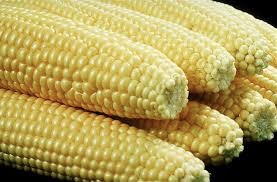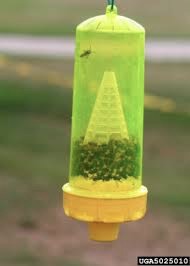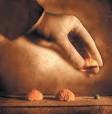September 2015
ItCouldHappen
20 09, 15 10:45 Filed under: MorningMissive

It could happen to you”
So starts Johnny Burke’s haunting lyric to Jimmie Van Heusen’s remarkable melody. Of course they intended this song to be interpreted as a love song, and it works very well as a love song, but Burke cleverly employs the old ambiguity, playing off the peril love implies—the peril life itself entails.
“Don't count stars or you might stumble
Someone drops a sigh and down you tumble”
Burke offers no easy out, either. Wishing on stars won’t provide any protection. Love might turn on a simple sigh; life, no less so. The tone screams precarious. He is not in control. Neither are we.
“Keep an eye on spring, run when church bells ring
It could happen to you”
Anyone who’s fallen in love recognizes the absolute absence of self determination in the experience. We don’t refer to it as ‘falling’ for nothing. We no more throw ourselves into love than we carefully pre-plan our existence. Later, after we’ve clearly succeeded, we can tout our marvelous master plan, scrupulously omitting the parts chance contributed. Until then, we’re flotsam and we should know it. Slip over here for more ...
Comments
CookingWithAltitude
19 09, 15 10:25 Filed under: MorningMissive

The thin air affects cooking as much as it affects the cook, and equally mysteriously. Water boils at a lower temperature which means that food takes longer to cook. How much longer depends upon some quadratic equation nobody can solve in their head. Like with all cooking, success remains a matter of feel. Those who lived their early years below a thousand feet developed a feel for cooking that seems wholly unsuited to altitude.
Moving here seems like being sent back to Go without my two hundred dollars whenever I enter the kitchen. Slip over here for more ...
CreationStory
14 09, 15 11:23 Filed under: MorningMissive

“Dr. David, will I flunk the class if I include Biblical references in my creation story? I love hearing about black holes and all this physics stuff, but I believe the Earth is six thousand years old and I can’t go against my beliefs when writing my paper.”
Dr. David had mentioned this possibility to me before he accepted the position. He was unsure how he would handle the question then and he was only slightly better prepared for it now. He quite firmly believes in the creation story science has constructed from rigorous observation and scrupulous projection. One of his students had even labeled him an evangelist for the passion with which he lectured, a characterization that made his skin crawl. He admits to the passion but he would never characterize himself as an evangelist, but upon reflection, he had to agree with his student’s assertion. Perhaps he is an evangelist, but he’s not promoting any faith-based acceptance. He expects proof rather than speculation, and proof requires no faith for acceptance. Slip over here for more ...
RoundingDown
13 09, 15 11:07 Filed under: MorningMissive

In recent years, available corn has hardly resembled the stuff we once so treasured, though it was commonplace. In Maryland, they called this white stuff sweet corn. Silver Queen, they called it. They could have called it tasteless and sweet, tough or mysterious, but I could not recognize it as corn. A successful hybridization but an utterly failed food, suitable only for compost or silage.
Earlier this year, I found a supplier here in Colorado who could provide halfway corn, a combination of yellow and white kernels which, if eaten blindfolded, approached the flavor and texture of the genuine article. I ate my share of that while pining after what my palate long ago came to know as real corn. This speckled stuff worked as a substitute but it was clearly standing in for the real thing. Slip over here for more ...
YellowJacketTrap
11 09, 15 22:27 Filed under: MorningMissive

As The Muse and I limped back toward home in our rental car generously ceded to us without drop charges since airplanes were not flying in the days following, our route took us from the Southwest north and even further west through what would later be referred to as red states. We had little besides the radio to accompany us across those vast deserts, but the radio was suddenly toxic. Too toxic to listen to. A side of the American character hardly imagined before became the prominent theme. “Kill them worse than they killed us,” the radio insisted without knowing who had done the deed or what had actually been killed.
The Muse and I quickly resolved to leave the radio off. Slip over here for more ...
Skillfully
10 09, 15 10:49 Filed under: MorningMissive

That slugger in baseball only rarely ever slams one over the fence. He’s considered a master if he manages a hit on something between a quarter and a third of his trips to the plate, much less frequently homering, slinking back to the dugout many more times than his teammates ever baptize him with GatorAde. Surgeons, though, rarely fail to deliver their goods and carry onerously expensive liability insurance to cover the odd shortfall.
I have no access to the slugger’s or the surgeon’s internal state. Do their many successes feel like success or like impending disasters, too? One writer insisted that writing, done well, should feel like one continuous mistake in creation, and that the key to writing well lies in mastering that nagging, insistent sensation of failing while continuing to write. That kind of mastery—a meta-skill, really, a fake-it-‘till-ya-make-it capability—might be the underlying ability defining every skill. Certainly with my writing, I experience no mastery more prominent than my now well-practiced ability to suspend my persistent disbelief in order to produce.
Slip over here for more ...


